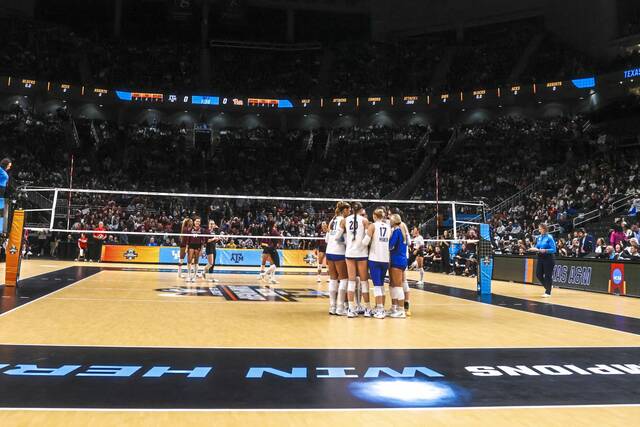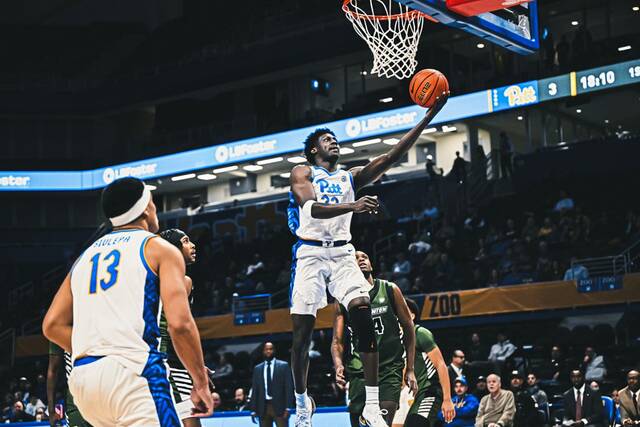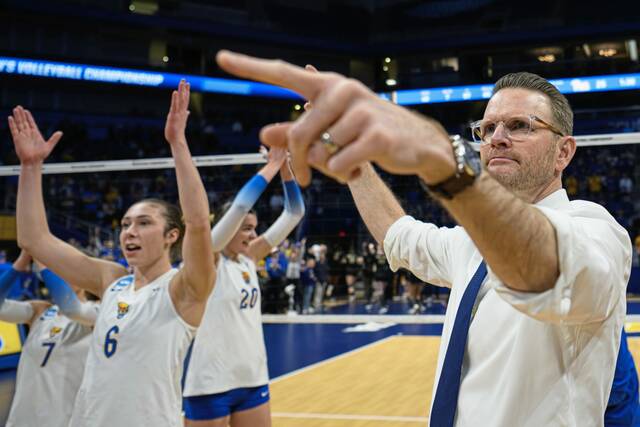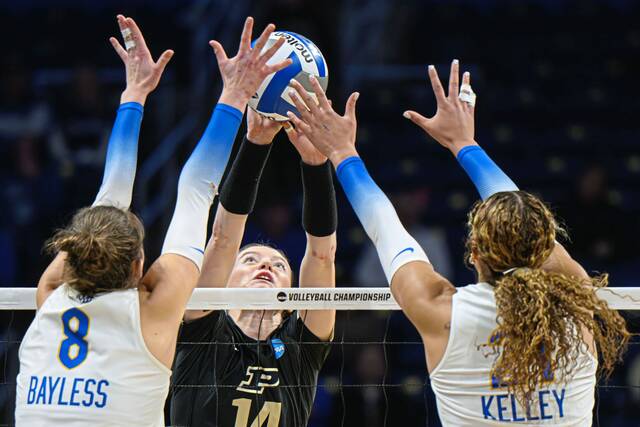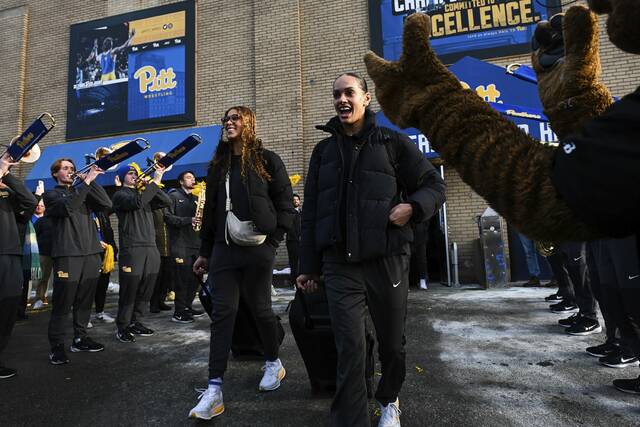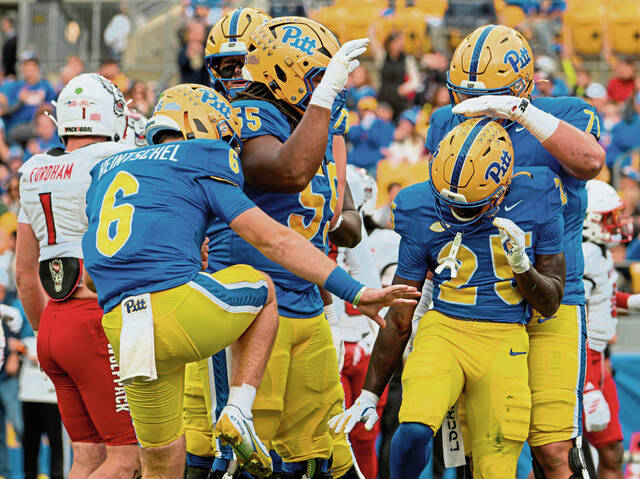First-year Robert Morris athletic director Chris King had just gone through a full week of overseeing his teams barrel through playoff performances.
The men’s basketball team had just won the NEC Tournament at the brand-new UPMC Events Center. His women’s team finished 17-1 in conference play. The men’s hockey team won its first-round playoff series. The women’s hockey team had just gotten to the CHA final.
But then the coronavirus hit. And the NCAA tournaments were canceled. Then campus was closed. And word emerged that an official who worked the Colonials victory in that NEC tournament final tested positive for the virus.
“That night we found out about the official, I broke out in a cold sweat in bed, and I’m thinking, ‘Oh no. I’ve got the virus,’” King said from his home Wednesday. “Then I wake up the next morning and I’m fine. And I realized it’s just nerves.”
You can’t blame King for being frayed. His school hosted the last sporting event of consequence in Western Pennsylvania. That night was a glorious evening for the university. But imagine if it became the night people eventually associated with an outbreak throughout the school. Or all of Moon Township.
Thankfully, it didn’t happen. King says that official eventually got healthy, and RMU never turned into a hotspot as a result. But now King is facing a whole new set of challenges, as are NCAA athletic directors across the country.
King joined me for a wide-ranging interview on the “Breakfast With Benz” podcast to touch on a number of different topics he’ll be facing, along with everyone else who is in his position across the country.
One matter that appears to be taken care of — on the surface — is that of scholarships for spring semester athletes who may have seen their eligibility expire without playing a final season.
They will all be granted an additional season of eligibility. On an RMU level, that was about 30 students. Approximately 16 may take advantage. So now it’s a matter of making those dollars work. If all 30 had come back to RMU, that would’ve been a $400,000 price tag. So imagine what those numbers look like for, say, a large state school in a Power Five conference.
To that end, the huge issue for the bigger schools is that they may not have college football to lean on as a cash cow to support the rest of the athletic department. Because even though the NFL has a chance to start on time — in front of fans or not — it’s going to be harder to get the college game going.
Think of all the hurdles.
An earlier start for camp. Living in campus environments. Needing classes to start. Different states. Different politics. Semester schools as opposed to trimester schools. Different living conditions and various sized schools. Public versus private.
If you think there are a lot of moving parts to get the four major sports leagues going, this machine is much harder to get in gear.
Let alone how the NCAA tries to streamline whatever the policies end up being.
That could prove to be extremely expensive for universities across the nation.
“I saw (a USA Today story) where the average Power Five school would lose $70 million, about a $4 billion proposition if football doesn’t play in the fall,” King said.
Schools such as Robert Morris and Duquesne that don’t have income that is disproportionately reliant on money flowing in from football may actually end up being pinched less by what’s happening because of that math.
Especially if college basketball can start on time by November.
But it’s not like King’s Colonials aren’t feeling it right now.
“In the present, (the NCAA sports shutdown) has absolutely affected the mid-major, FCS, the (smaller programs) much more significantly than the Power Five schools because of the reserves that they have,” King said.
“Once we get into football season, it’s not even close to the issues that the Power Five, or Group of Five schools would have as opposed to what we would have. What gets more difficult for us is if we get into basketball season. Then it becomes a financial catastrophe.”
King says there’s no indication yet if fall semester sports that bridge into the spring — such as hockey and basketball — will be allowed to start mid-fall if students aren’t deemed ready to come back until January 2021.
The rest of the podcast also surfs through a number of other weighty concerns for King and the rest of the athletics program. Things such as setting individual budgets for coaches, aligning rosters based on how scholarships are to be allocated, and how King is still trying to establish his workflow as an athletic director at RMU.
After all, he was only on the job for 10 months by the time the virus hit.




